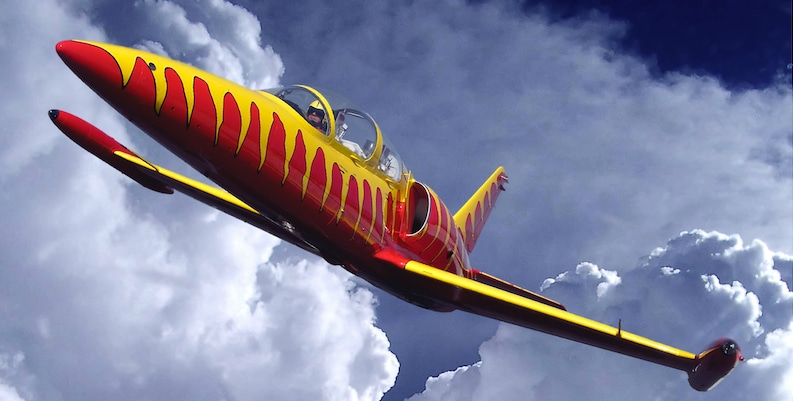PILOTS ARRESTED FOR DWI: WHAT YOU NEED TO KNOW
What A Pilot Needs To Know If Arrested For DWI or Faced With A Driver's license Suspension Choice
I. Introduction: The Problem for the Pilot in a DWI
The general public has no idea how unfairly pilots are treated by the Federal Aviation Administration (FAA) when they are arrested for DWI. The FAA does not presume the pilot defendant to be innocent, but rather, guilty!
Moreover, the FAA presumes without any backup information, that all breath and blood test results are accurate and reliable. In short, from an FAA enforcement perspective, there is a stacked deck against the pilot.
That being said, what is a pilot to do after being arrested for DWI? Should the pilot submit to a blood or breath test request or refuse it? Regrettably, there are no easy answers to these questions other than pilots should never drink and drive because the costs are just too high.
For the pilot who has been arrested for DWI, the only sage advice to embrace is to get the very best DWI/license suspension/Expunction lawyer you can get.
Importantly, this lawyer needs to both be knowledgeable and experienced in the Federal Aviation Regulations (FARs) so that the DWI pilot defendant can be guided through the FARs minefield.
Knowledge of the 60-day reporting rule, medical certificate expiration times, and Texas Expunction Law are critical to avoiding a suspension/revocation/deferment of a medical certificate.
This should not be the time to pinch pennies because there is so much riding on the outcome of the DWI/ license suspension prosecutions. Of import, because there are two prosecutions, the FAA has two shots at suspending and/or revoking and/or deferring the pilot’s medical certificate.
Unbelievable as it may sound, in most cases, the FAA takes the position that not only will the pilot be presumed guilty, but also, they will be presumed to have an alcohol abuse problem.
For example, a medical examiner (AME) must defer medical certificate issuance for any of the following (deferral criteria):
- Where the AME cannot obtain and review the court and arrest records within 14 days of the date of the examination,
2. For DWI/ Licensed Revocation cases:
a. Any DWI/License Revocations cases with a BAC of .15 or higher. This would even be the case where there was a BAC below .15 and where another was .15 or above. Indeed, this would still be the case if there was an arrest followed by a dismissal or not guilty verdict (unless there was an expunction). Without question, this rule applies to convictions and administrative driver’s license actions.
b. Any DWI case/license revocations where a BAC test was refused. Like above, this would still be the case if there was an arrest followed by a dismissal or not guilty (absent an expunction). Without question, this rule applies to convictions and administrative driver’s license actions.
c. Any DWI arrest, conviction, or administrative action within the proceeding two years AND THERE HAS BEEN ANOTHER arrest, conviction, and/or administrative action AT ANY OTHER TIME,
d. where there has been a total of three arrests or convictions, and/or administrative actions within a lifetime; and,
e. where within the proceeding ten years, there is a total of two arrests, convictions, and/or administrative actions.
II. The Answer for the Pilot
In regard to these draconian consequences, a timely expunction under Texas Law is the only way to legally avoid having to report any of the above under the 60-day rule or on a medical application.
For those that do not know, an expunction is a means to destroy all arrest and court records, and thereafter, under the protection of law to never have to admit the event ever happened.
In effect, an expunction is like a legal time machine that brings your life back to a time just before you were stopped and arrested. Accordingly, it should be obvious to the pilot who cares about flying, that the search for the right lawyer must immediately begin upon being arrested.
Common sense dictates that the DWI pilot defendant needs to act quickly because the medical certificate clock is always ticking.
In summation, an expunction can only occur where there has been either a dismissal and/or the pilot was found not guilty. Expunctions take time (averaging 3-6 months)!
That is why a good lawyer starts immediately planning the pilot’s DWI/license suspension defense while never losing sight of the expunction and the FAA clock.
III. But what if there cannot be an Expunction and there is going to be a Deferral: What must a Pilot do?
Where the expunction stars did not line up correctly for the pilot, and a deferment of the medical certificate occurs, the FAA requires the pilot to provide the following:
- a personal statement detailing his/her present and past patterns of alcohol and/or drug abuse,
2. their driving record for the past 10 years (even if in multiple states),
3. copies of all arrest and court records that have not already been provided to the AME. This might also include relevant military records dealing with non-judicial punishment or substance abuse.
4. An evaluation from an addiction psychologist/psychiatrist or addictionologist familiar with aviation standards. This would be a Human Intervention Motivational Study (HIMS) approved professional.
In regard to deferments, once the pilot is deferred, it is generally the case that the FAA requires a two-year proof of sobriety period. Here, it is incumbent upon the pilot to supply that proof in order to get back in the cockpit.
Again, the knowledgeable and experienced lawyer can help to guide, gather, organize, and structure that proof in the most persuasive way to help the pilot get back in the air.
IV. So when can an AME issue a Medical Certificate (issuance criteria)?
An AME can issue a valid medical certificate where none of the above-referenced deferral criteria are met. Where a deferral criteria is identified, but the most recent incident occurred more than five years prior to the exam, and the AME does a detailed interview, and the examiner determines on both the exam and the applicant’s history, that there is not a possible substance abuse or dependence problem, a medical certificate can be issued.
However, where the most recent incident was within the five years of the exam and the AME has the benefit of reviewing court records and arrest reports, the examiner may still issue a medical certificate where the examination and the applicant’s history did not indicate a possible substance abuse or dependency problem.
Note, for the latter to happen, the pilot applicant is going to have to have every “T” crossed and every “I” dotted, plus have all the arrest and court records for the AME to review within the allotted 14 day period.
Again, the knowledgeable and experienced lawyer can be of immense assistance to the pilot applicant in gathering, organizing, and structuring these records for the AME to timely review.
V. Closing: The Best Advice
The best advice to the pilot is to never drink and drive. The “8 Hours from Bottle to Throttle Rule” is just as applicable to automobiles as it is to airplanes.
But if you do get arrested for DWI and you are a pilot, please feel free to contact me so that working together we can keep you flying. Telephone (713) 524-1010 / gary@texasdwilaw.com / www.texasdwilaw.com
TELL US ABOUT YOUR CASE
Form Submissions have a fast response time. Request your free consultation to discuss your case with one of our attorneys over the phone. The use of this form does not establish an attorney-client relationship.
The information on this website is for general information purposes only. Nothing on this site should be taken as legal advice for any individual case or situation. This information is not intended to create, and receipt or viewing does not constitute, an attorney-client relationship.



